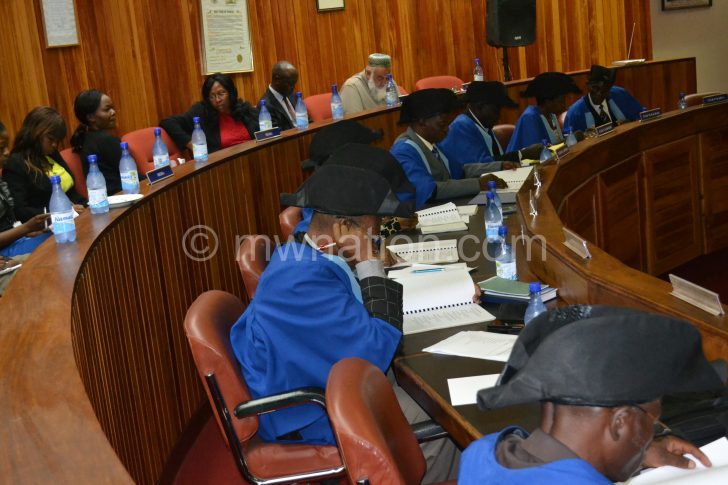Citizens don’t trust councillors—Survey
Malawians have expressed reservations with the performance of ward councillors and how councils spend funds, according to a Citizen Perception Survey (CPS) funded by the United States Agency for International Development (USaid).
The CPS, carried out in May this year, has also established that citizens are generally not satisfied with their access to information in councils.
On a positive note, though, the survey found that most citizens in councils are satisfied or very satisfied with the quality of projects implemented despite feeling that the councils need to improve in the delivery of health services and construction of road networks.
Reads the survey report in part: “The Citizen Perception Survey [CPS] asked questions about district government performance, accountability, transparency, financial management, and service deliver.”
USaid conducted the survey, which sought to capture citizens’ views on the performance of district government in a cost-effective but comprehensive manner, under the Local Government Accountability and Performance (LGAP) programme currently being implemented in eight of the country’s local councils of Lilongwe, Blantyre, Zomba, Kasungu, Mulanje, Machinga, Mzimba and Balaka to the tune of $22.9 million (about K16.4 billion).
LGAP conducted the survey in May 2017 with a sample of 12 000 households in the eight councils.
The survey asked citizens how satisfied they were with how their councillor consulted them and what they felt the role of the village development committee (VDC) was.
Out of the eight councils, the majority of citizens in seven of them said they were either dissatisfied or very dissatisfied with how their councillor consulted citizens.
In all the eight councils, the majority of citizens also expressed dissatisfaction with how councils spend funds on projects and services, but citizens in five of the eight councils expressed satisfaction with the quality of services offered by councils.
LGAP technical director Phaniso Kalua said in an interview in Mzuzu the survey was undertaken to find gaps that need filling up with the five-year project.
Said Kalua: “We wanted to understand the perception. This is not necessarily whether it is true or not true, but it really matters how people think about various issues. This is more like our baseline before we start our interventions.
“What is it that people think about various issues and this will give us a basis in terms of what we need to do to move these figures. Our interest is where people are dissatisfied so that we move them to a level where they are satisfied.”
On his part, Malawi Local Government Association (Malga) executive director Charles Chunga said the absence of councillors for nine years might have contributed to the gap that is there now as established by the survey.
He said the current crop of councillors went into office after the May 20 2014 Tripartite Elections without adequate information on their roles.
Said Chunga: “As Malga and other partners, we conduct trainings and mentorship, but training is not a one off thing. It is a process. However, citizens also have a role to play on issues of transparency and accountability. They have a right to demand information from the councils.”
Ministry of Local Government and Rural Development spokesperson Muhlabase Mughogho said she was yet to see the survey report.
Malawi has 35 local government councils broken down as follows: four city councils (Blantyre, Lilongwe, Mzuzu and Zomba), two municipal councils (Luchenza in Thyolo and Kasungu), one town council (Mangochi) and 28 district councils.





